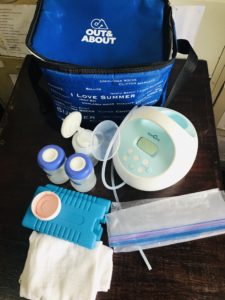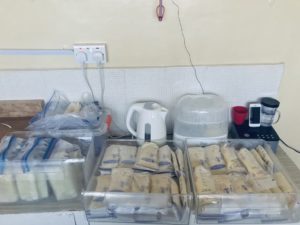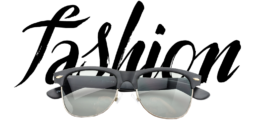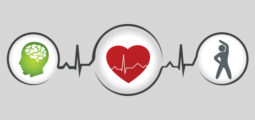MEET ARIANA
I have had 2 babies in the space of 2 years which means that for the last 2 years, I have been either pregnant or breastfeeding.
When I got pregnant with my first child, I honestly gave not much thought to how I was going to feed the baby. I was more interested in the cute little outfits and baby paraphernalia; which are on the market in abundance. I was ooh-ing and aah-ing over cute little rompers and wondering whether I should get wipe warmers (don’t get them. There’s absolutely no point to them). I downloaded an App (Pregnancy+) to keep track of my baby’s development and I am truly grateful to the creators of that App because it taught me a lot. It was during this learning process that I learnt about exclusive breastfeeding.
World Health Organisation and UNICEF recommend breastfeeding a baby within the first hour after birth and exclusive breastfeeding for the first six months and continued breastfeeding for two or more years. “Exclusive breastfeeding is when the infant receives only breastmilk without additional food or even water. Breast milk is the natural first food for babies, it provides all the energy and nutrients that the infant needs for the first months of life, and it continues to provide up to half or more of a child’s nutritional needs during the second half of the first year, and up to one-third during the second year of life. Breast milk promotes sensory and cognitive development, and protects the infant against infectious and chronic diseases. Exclusive breastfeeding reduces infant mortality due to common childhood illnesses such as diarrhoea or pneumonia, and helps for a quicker recovery during illness”
According to the experts, breastmilk is the best food for your baby and I was not about to argue with them so I decided that I was going to breastfeed exclusively. But boy, I had no idea how hard and emotional it was going to be. We stayed in the hospital for 3 days after my daughter was delivered and during that period, I experienced feelings of frustration and failure but also pain from chapped and cracked nipples. I had an emergency C-section so I already felt like I had failed as a woman (topic for another post) and then trying to feed my daughter felt like I was rubbing alcohol into my wounds. She would suck at my already cracked nipples until they were red but I was advised to feed through the pain; that it gets better and that is true. I must say though that this experience is not the same for all mothers; some women seamlessly get into the groove of breastfeeding. I was not so lucky but I persevered and did it anyway.
In March 2019 when I had my 2nd baby, I was better prepared. Not that this time around was smooth sailing but it was far easier because I had knowledge that came from experience and my mindset was healthier; I was not feeling like a failure and I was not letting my frustration get the best of me. I knew I could do this and so I just trod on!
I breastfed my daughter until 8 months when she self-weaned and I am currently breastfeeding (exclusively) my son and I have learnt a few lessons which I want to share with pregnant women or new mothers; especially those working out of the home, who have to balance returning to work and taking care of a newborn. Generally, women in Sierra Leone get only 3 months of paid maternity leave and if you are a mother or have lived with one; you know that this time is not enough because our bodies need time to heal from childbirth. It took you 9-10 months to grow that little human!! Please note that these tips are not in order of relevance.
 Tip 1: Breastfeeding is natural but it is not easy.
Tip 1: Breastfeeding is natural but it is not easy.
Do not make the mistake of embarking on the breastfeeding journey thinking that it will be without hiccups or mishaps. Cracked and chapped nipples (at least for the first few weeks), engorged and leaking breasts, low supply, wardrobe adjustments (not all clothes are breastfeeding friendly) are just a few of the issues that you will deal with. But for me, I think the worst has to be the amount of self-doubt that I had to contend with. Every time my daughter cried, I thought that she was hungry because I was not making enough milk. Now I know that babies cry and often for no reason that we can discern. I was jittery each time we went to the hospital for her routine check-ups because she was not packing on the cute baby rolls that I saw on other babies. But she was fine, she was healthy and developing well and most importantly her Dr. was not worried. After about 4 months, I learnt to worry a little less because let us face it, worrying is the default setting of parenthood so it was not about to go away completely. However, I did not let those issues stop me, we did it and we are both the better for it.
Tip 2: Be informed and have the right support
Educate yourself about breastfeeding; there are a lot of materials out there. You need to go into it armed with all the relevant information you can find. A good source of information is other mothers but do not let some of their stories deter you because we are all different and so are our babies. Both of my children were exclusively breastfed for 6 months but my daughter weighed less than 10kgs by her 1st birthday whilst my son currently weighs 8.1kgs at only 5 months. Listen and learn but do not internalise their struggles.
I was lucky to have given birth in a hospital in Nairobi that was a breastfeeding supporting hospital so from day 1, I had a lot of support; from the Dr. who delivered my babies to the nurses, paediatrician and lactation consultants. But also, and most importantly, I had the support of my husband. We had discussed exclusive breastfeeding and he had also done his research on it (to my surprise) and was on board so he gave me all the support I needed especially in those first few days after birth.
Discuss the matter with your baby’s caregiver; if you have one. Be it your mum, sister, aunty or nanny; make sure you are all on the same page. Do not take it for granted that they will understand; especially grandmothers or older women in your family. My mom was not happy about the fact that I did not let her give my babies warm water (hahaha) but I took the time to explain to her that breastmilk was the best thing for my babies and eventually she let go of her hurt. I may have also scared her when I told her those were the doctor’s orders but I am not admitting blackmail!!
Tip 3: Nutrition, Nutrition, Nutrition!!
Eat well; eat really really well. This does not mean that you should eat foo-foo every day or guzzle cans of soft drinks with your every meal but eat nutritious meals. Your body burns about 200-300 calories every time your baby feeds and babies feed about 8-12 times in a 24-hour period. Just do the maths and you will see that your nutrition is absolutely important during this time. Make sure every meal contains vegetables, grains like rice and bulgur, proteins and healthy fats. Snack on food items like nuts and fruits and drink water like you have never done before. This was a challenge for me because I did not like drinking water but I forced myself to drink at least 2 litres of water a day and before I knew it, it had become a (good) habit that I am now grateful for.
 Tip 4: Invest in a good breast pump and use your maternity leave wisely.
Tip 4: Invest in a good breast pump and use your maternity leave wisely.
I resumed work four months after my 1st baby and 10 weeks after my 2nd. When I say I breastfeed exclusively, people ask me how I do it when I have to be at work all day and my answer is pumping. I use a breast pump to extract the breastmilk from my breast and I store it in the freezer so that when I am at work, my baby will still be fed breastmilk. There are a lot of breast pumps on the market with a wide price range and if you are a mom who works out of the home, you can not exclusively breastfeed without this accessory unless you are allowed to bring your baby to work with you or you work 5 minutes away from your home. I used this Lansinoh Double Electric Pump with my 1st baby . The best I have found however is the one I am currently using, the Spectra S1. Please note that there are far cheaper options on the market but ensure you read the reviews before you purchase. All hail the almighty Amazon!!
Whilst on maternity leave, try to pump and store as much breastmilk as you can. For me, I pumped every time after my babies fed and when I woke up to feed them at night, I would also pump. This ensured that by the time, I resumed work, I had saved up 80 bags of breastmilk for my son. That was sufficient to feed him 4 times a day (whilst I was at work) for 20 days. To feed him, his caregivers just defrost the milk by putting it in cool water and then pour into a bottle and heat up in warm water. ALWAYS check the temperature of the milk before you feed your baby to ensure it is not too hot. It cost me a lot of missed sleeps but it is absolutely worth it. But I did not stop when I resumed work, I now pump 3 times a day; in the morning before I leave for work, in the afternoon during my lunch break and in the evening before I go to bed. I have a pump bag that contains the following: breast pump and bottles, breastmilk storage bottles and caps, ice packs to keep the milk cool, pumping bra (though I just use my nursing bra), breast pads (very important for those leaking breasts) Ziplock bags to store used breast pump bottle and parts, towel to wipe up any spills, breast pump charger or batteries (you do not want to forget these. Engorged breasts can be pretty painful). When you use the breast pump, you can keep the bottles and parts in the fridge or in a cooler bag to use again. Always wash, sterilize and dry them at the end of every day.
 Tip 5: Commit to it
Tip 5: Commit to it
I cannot tell you how many times I almost gave up exclusive breastfeeding; especially with my first child. There were days when it was incredibly hard to keep going and the only thing that helped me through it was the thought that I was giving her the best start in life. I love sleeping and having a newborn who woke up every 2 hours at night to feed was so difficult. Sometimes, waking up to pump in the night was impossible; my body just would not let me so I would sleep and pump in the morning. Exclusive breastfeeding takes a lot of commitment, you have to want to do it because that is the only reason that would carry you through the days of low supply and sleepless nights.
Pumping whilst at work, especially if you work in a shared office space takes a different kind of effort and often it is just easier to give up. I have pumped in my car and in other people’s homes when I am out. My breast pump bag comes with me if I have to go out for more than 4 hours without my baby.
Tip 6: Enjoy it and if you do not, stop it.
Just as with most things in life, you should not breastfeed exclusively if you do not enjoy it. I have read stories of women who could not deal with how much time was required to do it. Some felt as though pumping breastmilk, stole from them time which could have been used to bond with their babies and others just did not like breastfeeding. Breastfeeding is not for everyone and if you do not enjoy it, don’t force it. It will make both you and your child miserable at a time that should be a happy time for your family.
I have enjoyed doing this, it has shown me that I can do anything if I am determined to. Often, I fail to see that this is a huge achievement and maybe it is because I have been conditioned to not see things that mothers do for their children in that light; it is our duty. But I am learning to be proud of it and if I can inspire just 1 working mother to exclusively breastfeed their child by sharing my story then I would be happy. I am truly grateful to God that I have been able to do this; I produce so much milk that my 21 months old daughter who had self-weaned at 8 months has decided that she likes breastmilk again. I am not complaining though; it saves me money that would otherwise be spent on formula.






Wow beautiful…..so determined to do exclusive breastfeeding for 6 months. Thanks Fatmata for sharing your experience.